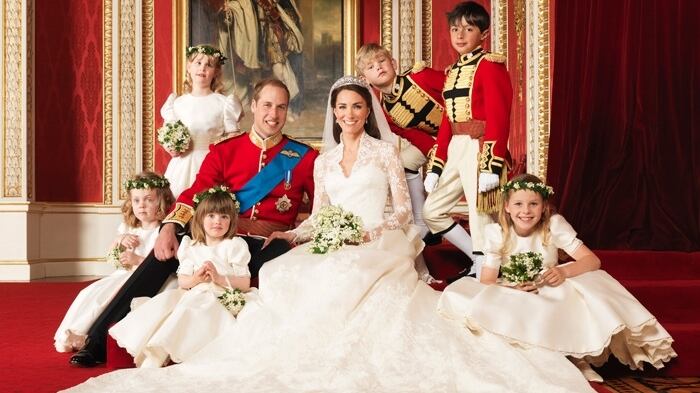The modern British royal family has a tradition of knocking out the heir to the throne as rapidly as possible.

The Queen produced Prince Charles six days before her first wedding anniversary, and Princess Diana did even better. Married on 29th July 1981, she gave birth to Prince William on 21st June the following year.
So why has the former Kate Middleton, married now for more than a year, not followed their example?
There are several reasons why Catherine, Duchess of Cambridge, might have decided to delay her first child. It has been suggested that she and William do not want to upstage the Queen in her Jubilee year; that Kate needs to get accustomed to public life, or perhaps that the couple just want to enjoy each other’s company for a little longer – and why not?
But the real answer may lie in New Zealand, where an obscure committee of lawyers and civil servants is currently rewriting the laws of succession to the British throne.
It seemed so simple when David Cameron arrived at the Commonwealth Heads of Government Meeting last October with a proposal to update the rules of royal inheritance in line with modern principles of equality. The idea had originally come from Buckingham Palace; that boys should no longer have precedence in the succession over girls. The throne should go to the firstborn child, male or female.
The assembled premiers of Canada, Australia, New Zealand and the dozen other Commonwealth ‘realms’ who acknowledge the Queen as Head of State all cheerfully signed up to the idea, and New Zealand was assigned the job of turning it into practice. A committee was charged with working out the wording that all the other realms – Britain included – would incorporate into their new succession statute.

But the committee is still talking, and until they produce their new wording – and until every one of the sixteen Commonwealth realms has found time in their busy legislative timetables to get the new law onto the statute book – the status of William and Kate’s firstborn will be in limbo.
The Commonwealth prime ministers have announced that, whatever the new law says, the rule will be retrospective. So William and Kate could, in theory, go ahead on this basis and produce their baby straight away or whenever they like, leaving the politicians to sort out the succession status of the child after the event.
But what if William and Kate produce twins, a boy and a girl, and the girl comes out first? Under the existing law her younger brother will be first in line until the rules are changed – when the succession will be yanked away from him to be bestowed on his sister.
Kate could very easily produce twins: William's uncle Charles Spencer has identical twin daughters; his grandfather Lord Fermoy was an identical twin; on Kate's side her paternal grandmother had a twin sister (Peter Middleton, Kate's grandfather, rather charmingly married one twin while his brother married the other) and Kate's father Michael had twin Middleton great-aunts.
Twins aside, and at the current rate of progress, the parliamentary haggling could drag out so slowly that the royal couple would have time to produce a baby girl then a boy – with the same embarrassing switch of status, and the prospect of a lifetime of ‘if onlys’. What if the girl to whom the new law awards the succession proves a flop, while the boy who was actually born to be king under the system applying at the time of his birth turns out a Prince Charming?
Last week the Cameron government could give no date for getting the new law on the books any time soon. It could only promise in the Queen’s Speech to ‘continue to work with the 15 other Commonwealth realms to take forward reform of the rules governing succession to the crown.’ British statutes that may have to be modified include the Bill of Rights, the Coronation Oath Act, the Act of Settlement, the Act of Union between England and Scotland, the Accession Declaration Act, Princess Sophia's Precedence Act, the Royal Marriages Act, the Union with Ireland Act and the Regency Act.
In Canada, the French separatists of Quebec could throw a spanner into the works thanks to a provision – Section 41 of the Canadian Constitution – that requires the unanimous consent of all the provinces for any changes to the status of the King or Queen Regnant.

How happy can William and Kate be at the prospect of a dozen or so parliamentary talking shops around the world arguing over the status of the little darling – or darlings – that they are pushing around in the royal pram, with republicans taking advantage of their offspring’s undecided status to grandstand and score points about the unjust and archaic system which the child is being forced to perpetuate?
Not happy at all, the evidence would suggest. But if Kate and William are indeed delaying their first child until the parliaments of the old British Empire have all had their say, we could be in for a very long wait.Robert Lacey’s new book, "The Queen – a Life in Brief", is published today by Harper Perennial, $15.99






